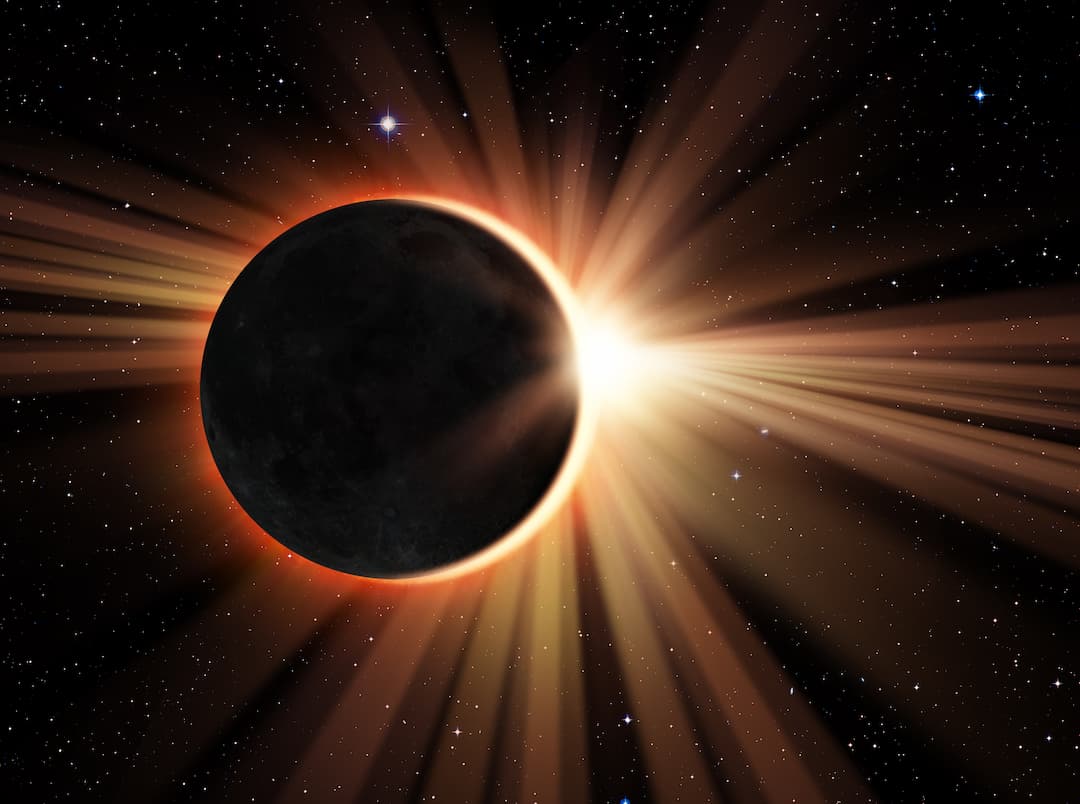
Another year brings another full calendar of spectacular stargazing events, with many visible to the naked eye right from your back garden! Here’s just a few things to look forward to seeing light up the skies in 2021:
Mercury, Jupiter, Saturn and the Moon – all at once! (March 9th)
One of the first major cosmic events this year will be a striking collection of three planets, all visible alongside our own crescent moon. The four cosmic bodies will appear in almost exact alignment, and those at home with a telescope can even treat themselves to seeing Saturn’s strikingly mysterious rings. Each of the planets will appear as bright, vivid dots in the night sky, with giant yellow Jupiter being the most visible to sparkle in the Sun’s reflections.
Total “blood moon” lunar eclipse (May 26th)
While more of a “blush” than “blood”, those living in North America, South America, as well as some parts of Asia and Australia will be treated to a total lunar eclipse. This happens when our Sun, Moon and Earth all line up perfectly for a brief moment, as the Earth’s dusty atmosphere casts a red/orange shadow onto the Moon’s surface.
Intense meteor showers (August 12th)
One of the more impressive astronomical events to look forward to this summer will happen when Earth passes through a cloud of space debris. At this point, our skies will be lit up with bursts of brilliant shooting stars in the deep, dark and empty night. Known as the Perseid meteor shower, you can expect to see up to 60 space-fireballs dart past our planet every single hour.
Mars-Mercury close encounter (August 18th)
August is set to be a busy one for stargazing enthusiasts, and will also see Mars and Mercury pass by each other in a cosmic close encounter. While it may be a bit tricky to see for some (thanks to the position of the Sun), those at home with telescopes can turn towards the western horizon to see two of our closest neighbours at once.
Total solar eclipse (December 4th)
What could be better to end the year off than a total solar eclipse? While it will only be visible to a select few places in the Southern Hemisphere (the clearest being Antarctica), those lucky enough to catch it will be gifted with a spectacular few minutes of complete darkness during the day. For many others in places such as Chile and Argentina, however, a partial eclipse can also be seen – but make sure to wear proper solar-filtered glasses to avoid damaging your eyes!
There is one more major event that could happen in the cosmos this year – but that’s entirely down to you! Register a star with us today to make your own mark on the night sky.
